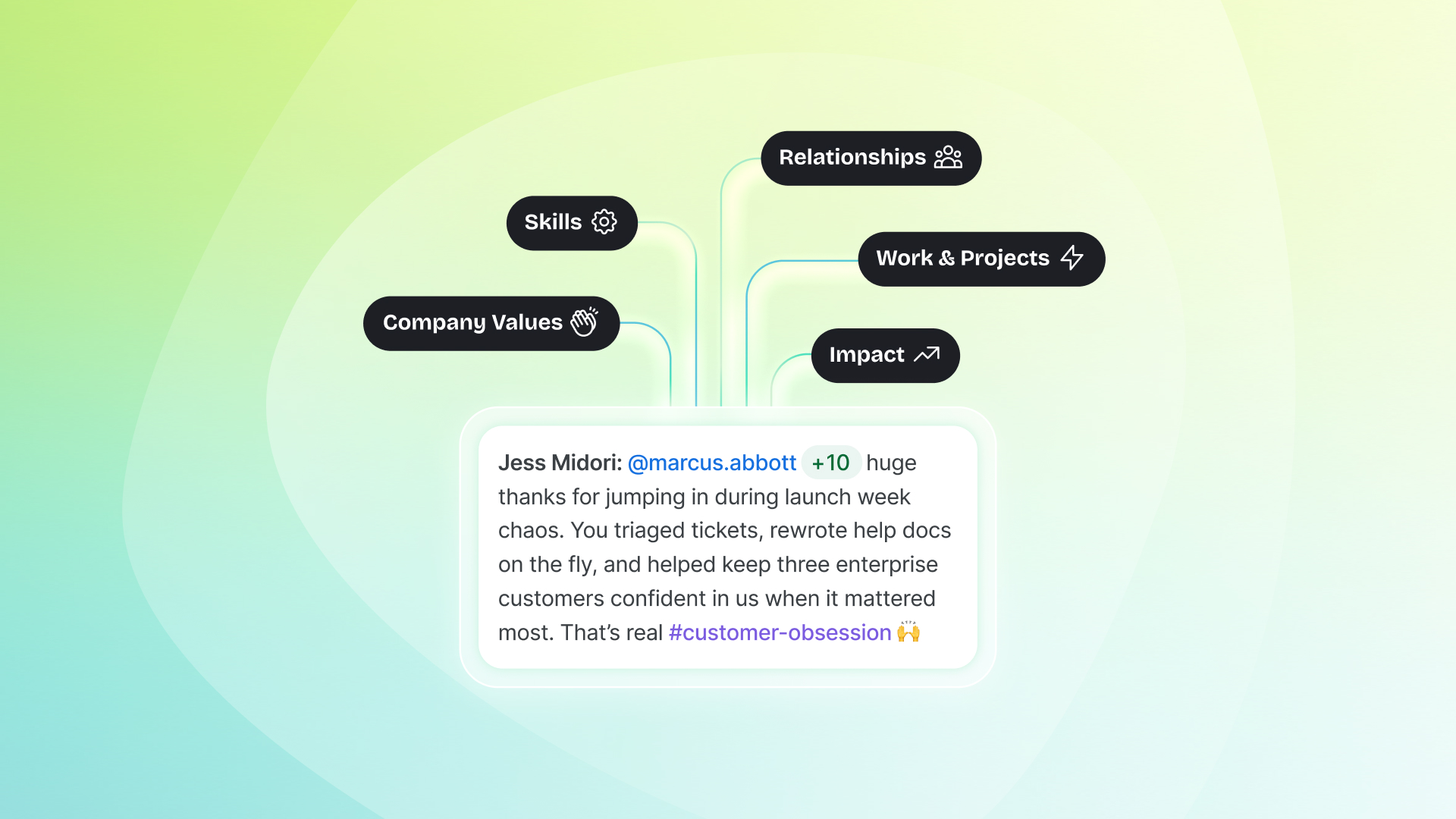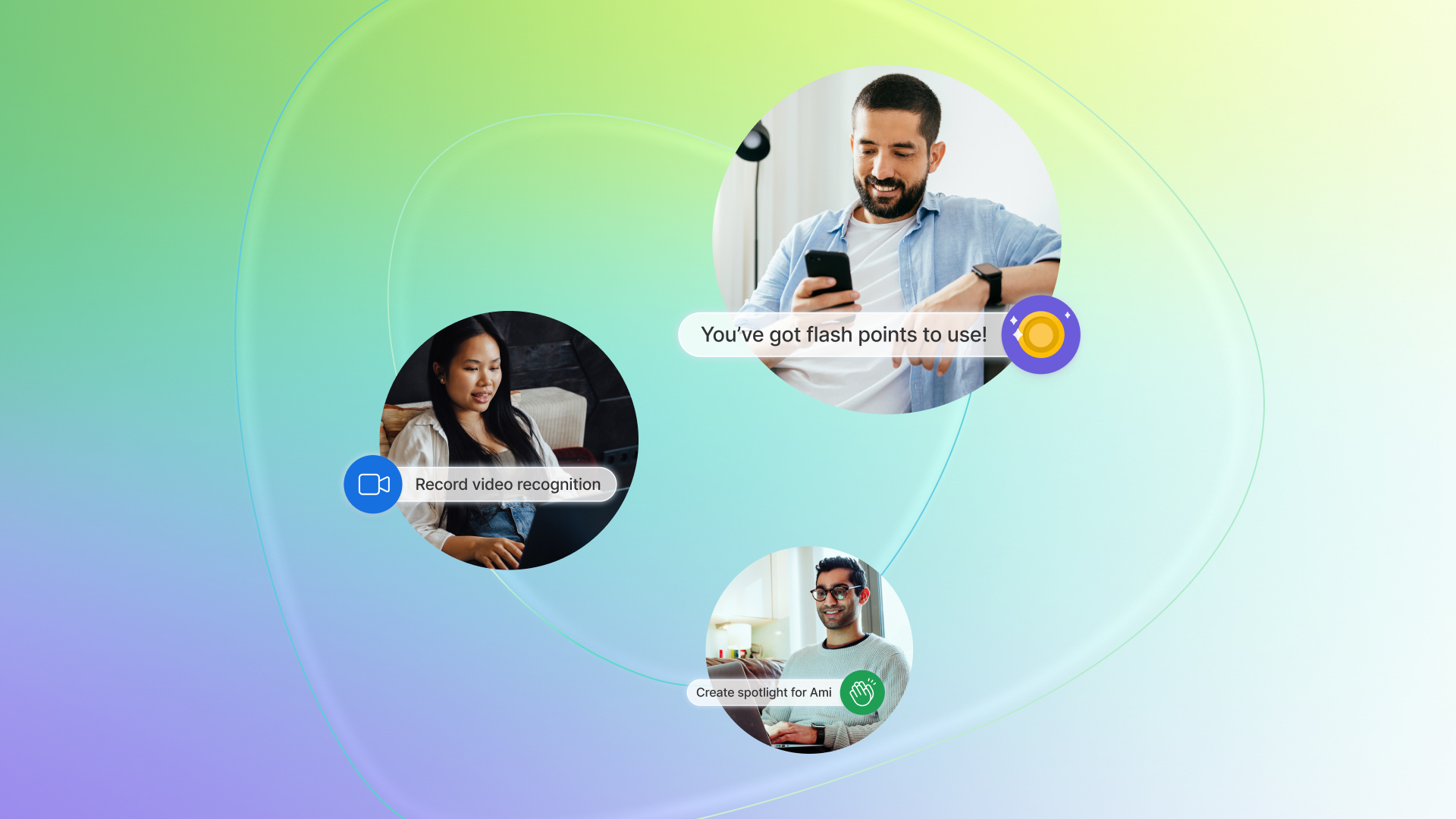Improving Employee Engagement and Outcomes Starts with This Key Relationship

At its core, employee engagement is about building relationships. But focusing on the right relationships makes all the difference.
There are three work relationships that boast an outsized impact on an employee’s ultimate success: the relationship between the company and the employee, the relationship between the employee and their peers, and the relationship between the employee and their manager.
In this post, I’m diving deeper into the strategies you can use to establish and nurture that first critical relationship, between the company and the employee.

Building a strong foundation with mission and vision
Getting this relationship (the one between an employee and their employer) right matters. According to Gallup, we’re in the midst of a decade-long decline in employee engagement, in large part due to workers feeling less connected to a company’s mission and purpose. Remote and distributed workforces haven't made things any easier. But there are ample opportunities to strengthen this relationship and build a healthier, thriving workforce.
That entry point for building a strong foundation actually starts before the employee ever steps into the picture.
Employees know they are hired for a role and are expected to achieve relevant impact and outcomes. But now, more than ever, employees want to feel a part of something bigger than themselves—to align with a company’s mission and values.
It’s often taken for granted, but some companies don’t clearly articulate their mission, vision, and values. Therein lies the problem. Today’s employees want to know what the company aspires to be and do in the world—and how they hold themselves accountable as they achieve those goals. This is particularly true for our Gen Z co-workers, who will make up more than a quarter of the workforce by 2025.
The truth is that all employees want to be a part of something bigger than themselves, something that inspires them to get out of bed in the morning and bring their best thinking and efforts to bear. A clearly articulated mission, vision, and core values help to establish this shared sense of connection and purpose from the get-go.
These elements of your company's identity are critical to center when making decisions around recruiting and hiring, day-to-day operations, determining how to approach employee recognition and rewards for outstanding contributions, and how positive and constructive feedback contributes to growth within the company.

How to build strong connections between your employees and your organization
With a clear foundation of vision, mission, and values, companies can begin to build real and meaningful relationships with their employees.
Part of that work has already been done. Ideally, your employees have been hired in part because they share a strong belief in your organization's mission—and because they demonstrated a history of behaviors and attitudes that align with your core values. An employee's relationship to your organization becomes more meaningful (and more lasting) when that shared sense of purpose is consistently referenced throughout their experience at the company.
By incorporating your mission, vision, and core values into organizational planning, performance reviews, and culture-building moments like wins and recognition, you can reinforce and build upon your employee's initial connection to the organization.
But it's not just about core values. For companies to build trust and loyalty, it’s imperative that employees feel seen and valued as humans as well as workers.
You really don’t need to overthink this: celebrating personal events and being supportive during personal challenges are non-negotiables in building this bond. Awards for performance and incentives for important contributions also strengthen the ties between employees and their employers.
What matters here is consistency and fairness. The moment you miss an important milestone like a birthday or anniversary, your employee’s relationship to your organization starts to erode.
Other ways to strengthen relationships with your employees
Employees want to work at organizations where they feel a sense of personal and professional connection. But building meaningful relationships with employees can also help an organization foster a positive workplace culture, drive engagement, and enhance overall performance.
If your organization already operationally centers its core values, another key way to strengthen employee ties is through storytelling. When leaders highlight examples of core values in action, and the outcomes those values help drive, it creates powerful real-world examples for the entire organization and encourages employees to embody those principles in their daily work. It at once helps to set and raise the bar of what "good" looks like at your organization.
Frequent, transparent communication is another critical component. Clear and consistent employee communication about expectations, priorities, and organizational goals helps employees feel informed and aligned with the company’s vision.
Recognizing and incentivizing desired behaviors also plays a crucial role in relationship-building. By celebrating both individual and team successes, organizations can create an environment where employees feel valued for their contributions. Providing support and encouragement during challenging times further strengthens these bonds, as employees appreciate knowing that their well-being is a priority for the company. Moreover, creating space to celebrate uniqueness encourages diversity and inclusion, allowing individuals to bring their authentic selves to work.
Finally, flexible and tailored recognition programs can help motivate employees based on what matters most to them. By personalizing recognition efforts, companies can deepen relationships and create a more committed and motivated workforce.
Through these strategies, organizations can cultivate a workplace where employees feel valued, supported, and inspired to contribute their best.
Want to learn more? Schedule a demo with our team today.








